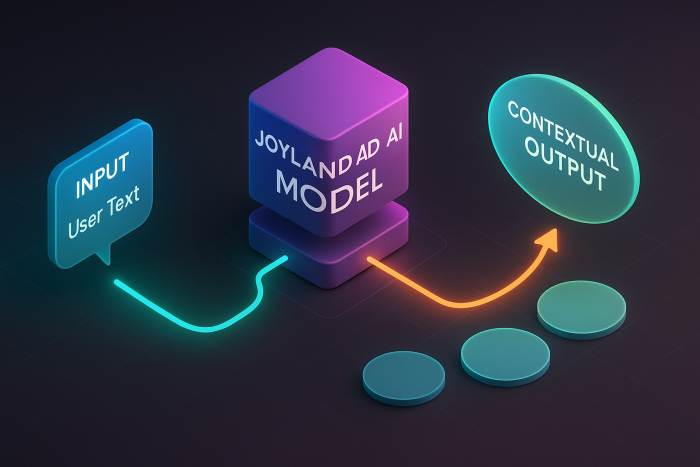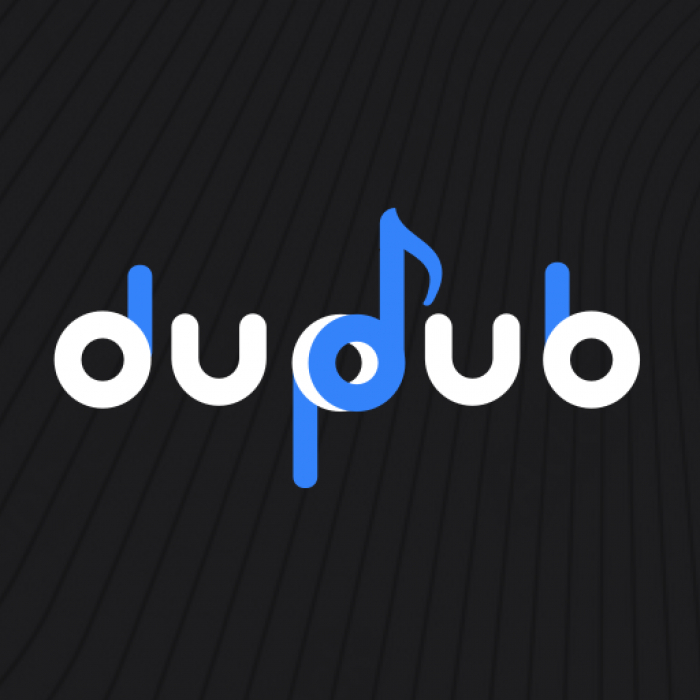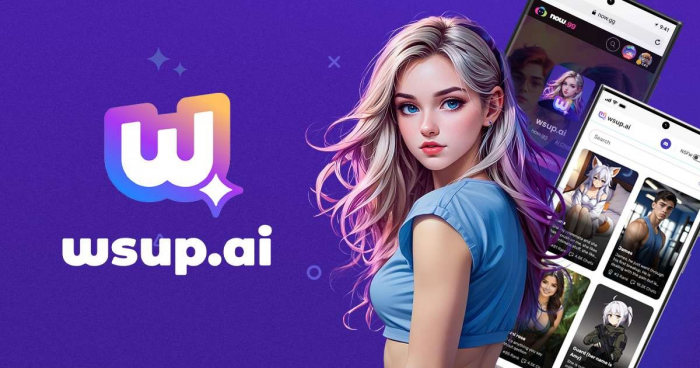On This Page
- The Rise of AI Roleplay Worlds
- First Impressions of Joyland AI
- Inside Joyland’s World: How the AI Works
- The Boundaries of Fantasy: NSFW Mode, Filters, and Ethics
- Feature Breakdown
- The Interface and User Journey
- Free vs Paid Experience
- Community Reactions
- Behind the Screen: The Tech Foundation
- Joyland vs Other Roleplay AIs
- The Psychology of Use: Escapism, Creativity, or Loneliness?
- The Cultural Footprint: From Chat to Creative Medium
- Can Joyland Survive Long-Term?
- My Verdict
- Looking Forward: The Future of Roleplay AI
The Rise of AI Roleplay Worlds
Over the past few years, AI companionship has evolved from a niche novelty into a mainstream form of entertainment. Millions of users now spend hours inside conversational universes where characters remember, adapt, and improvise.
From Replika’s emotional support focus to Character.AI’s creative personality simulations, the market has matured quickly, and into this crowded field stepped Joyland AI, a platform built around anime-styled storytelling and user-driven fantasy.
Its rise wasn’t accidental.
According to discussions on Reddit and TechPoint Africa’s 2025 guide, anime culture and AI chat merged into a new digital theater where imagination and intimacy coexist.
This shift in user behavior set the perfect stage for Joyland AI’s world of roleplay and creativity.
First Impressions of Joyland AI
Opening Joyland’s web portal or mobile app feels less like launching software and more like stepping into a curated story world. Categories like Anime, Romance, and For You immediately define its identity: this is not a productivity bot or task assistant, it’s a creative sandbox for emotional dialogue.
Each section introduces hundreds of community-created characters with unique backstories and tone profiles. A user can step into a fantasy romance, a detective mystery, or an anime classroom with a single click. Reviews on the Play Store describe the onboarding as “intuitive but occasionally laggy.”

Yet underneath that simplicity lies a surprisingly layered conversational engine waiting to be explored.
Inside Joyland’s World: How the AI Works
Joyland’s dialogue system uses a fine-tuned conversational model designed for narrative continuity. According to analyses from The Data Scientist and Digital Software Labs, the platform employs modular prompts that let each character maintain tone and short-term memory. The result is a smoother story flow than most open chatbots
 .
.
However, long-term memory remains shallow; after a dozen exchanges, personality drift and repeated phrasing can occur. This aligns with user complaints on Reddit about “story resets mid-conversation.”
Still, the underlying structure makes Joyland feel like an interactive novel, a delicate blend of AI logic and improvisation.
The Boundaries of Fantasy: NSFW Mode, Filters, and Ethics
No review of Joyland is complete without discussing boundaries. Unlike Character. AI’s tightly restricted model, Joyland, allows adult-themed and romantic narratives under its NSFW mode, clearly labeled behind consent gates.
Yet users report inconsistencies: certain filters overreact to harmless dialogue, while others miss explicit context entirely. Ethical critics, including threads on r/joyland_ai, question whether Joyland should strengthen moderation or risk misuse.
That tension between creative freedom and responsible design defines the platform’s ongoing identity crisis.
Feature Breakdown
Strengths:
- Persistent short-term memory between sessions
- Roleplay generator that keeps dialogue thematically coherent
- Multi-device access with near-instant sync
Weaknesses:
- Limited factual grounding, prone to “hallucinated lore”
- Delayed responses during traffic spikes
- Occasional abrupt tone changes when switching genres
Verdict: Feature-wise, Joyland hits the middle ground between pure creativity and structural stability. It performs well for entertainment, but not for consistent character realism.
And like most narrative tools, usability defines whether those features truly shine.
The Interface and User Journey
Visually, Joyland leans heavily into anime minimalism, soft gradients, rounded chat bubbles, and character cards with vivid artwork. The UI feels inviting but sometimes cluttered during longer chats. Mobile responsiveness is adequate, though app reviews cite occasional input lag.
Navigation is straightforward: choose a character → enter the scene → chat continues until token limits reset.
It’s not a complex product, but that simplicity is its charm, anyone can start a story in under a minute.
However, the real divide begins when you compare the free and paid journeys.
Free vs Paid Experience
Free users enjoy open access to most characters but face restrictions: shorter chat threads, slower model refresh rates, and occasional ad interruptions.
Paid subscribers, according to The Data Scientist’s review, gain “priority compute,” meaning faster replies, longer continuity, NSFW mode access, and exclusive story packs. The difference is noticeable, casual users may not mind the delay, but frequent storytellers quickly feel the cap.
Pricing remains mid-tier, below Replika Pro but above open-source roleplay bots.
This split naturally leads to the question of how the community perceives value beyond price.
Community Reactions
On Reddit, opinions remain divided. Roughly 70 % positive, 20 % neutral, 10 % negative, based on aggregated sentiment across threads.
Praise: Users love its freedom, the anime aesthetic, and emotional unpredictability.
Criticism: Repetition, lag, and moderation confusion.
Observation: Several reviewers describe Joyland as “a creative writing tool disguised as a relationship simulator.”
This feedback loop keeps Joyland honest; its team often updates filters based on community pressure, as noted by DigitalSoftwareLabs.
But feedback is only half the story; the code behind the curtain explains the rest.
Behind the Screen: The Tech Foundation
Technical inspection from AIToolsOne reveals Joyland’s backbone likely merges a lightweight proprietary LLM with cloud inference layers optimized for short bursts of dialogue.
Its architecture favors responsiveness over reasoning depth, which explains fast but sometimes inconsistent replies.
Security and privacy, while basic, meet expected app-store standards, though data-retention policies remain vague.
The outcome is a platform technically agile yet strategically uncertain, poised between growth and exhaustion.
Joyland vs Other Roleplay AIs
| Platform | Focus | Strength | Weakness |
| Joyland AI | Anime + Roleplay Worlds | Immersion, Freedom | Repetition, Moderation Gaps |
| Character.AI | Personality Chat | Realistic Dialogue | Strict Filters |
| Replika | Emotional Companion | Empathy, Voice Calls | Paywall Heavy |
| Dopple AI | Visual Avatars | Photorealistic Design | Limited Depth |
Joyland holds its niche, creative but inconsistent, flexible but unstable.
Yet beneath comparison lies something deeper: why people use it at all.
The Psychology of Use: Escapism, Creativity, or Loneliness?
AI companions blur social lines. Joyland’s users describe the platform as both “therapy and theater.” For many, it’s not loneliness but imagination driving engagement, the urge to build worlds where feedback feels human
Still, psychologists warn of over-attachment to adaptive chatbots. TechPoint Africa’s review highlighted the need for transparency: users must know they’re performing with algorithms, not emotions.
And that awareness gives weight to Joyland’s cultural ripple.
The Cultural Footprint: From Chat to Creative Medium
Joyland isn’t just an app; it’s a stage. Fan art on Instagram, AI-generated story compilations on Reddit, and shared screenshots on Discord illustrate how its community treats roleplay as collaborative art.
Unlike corporate chatbots, Joyland democratizes storytelling, anyone can craft a persona, publish it, and let thousands interact.
This cultural layer is Joyland’s strongest legacy: it transformed chat into participatory fiction.
But culture alone can’t guarantee sustainability.
Can Joyland Survive Long-Term?
Evidence suggests mixed signals. Update frequency has slowed, server uptime fluctuates, and funding transparency remains limited. For niche AI studios, balancing server cost with free access is a perpetual struggle.
Experts at FreeRDPS argue Joyland’s challenge is not users but economics: “Creative AIs burn cash before they build retention.”
Unless monetization stabilizes, Joyland risks following the path of Moemate AI, alive, adored, but aging quietly.
And that brings us to the final assessment, beyond hype or nostalgia.
My Verdict
Joyland AI offers one of the most distinctive roleplay experiences available, immersive, unpredictable, and culturally rich. Yet it carries technical and ethical fragility: lagging moderation, thin memory, and uncertain longevity.
If you’re an author, fan-fiction writer, or casual creative, Joyland can inspire. If you’re seeking stable companionship or deep emotional conversation, it may disappoint.
Ultimately, Joyland remains what it was meant to be, a story engine, not a soulmate.
Looking Forward: The Future of Roleplay AI
AI storytelling is entering its next phase, one where text, voice, and visuals merge into unified character experiences. Joyland pioneered part of that journey; others will refine it.
The question isn’t whether AI can simulate relationships anymore, but whether we’re ready to manage the emotional reality they create.
In that sense, Joyland AI’s greatest contribution isn’t its characters, it’s the mirror it holds up to ours.
Post Comment
Be the first to post comment!





